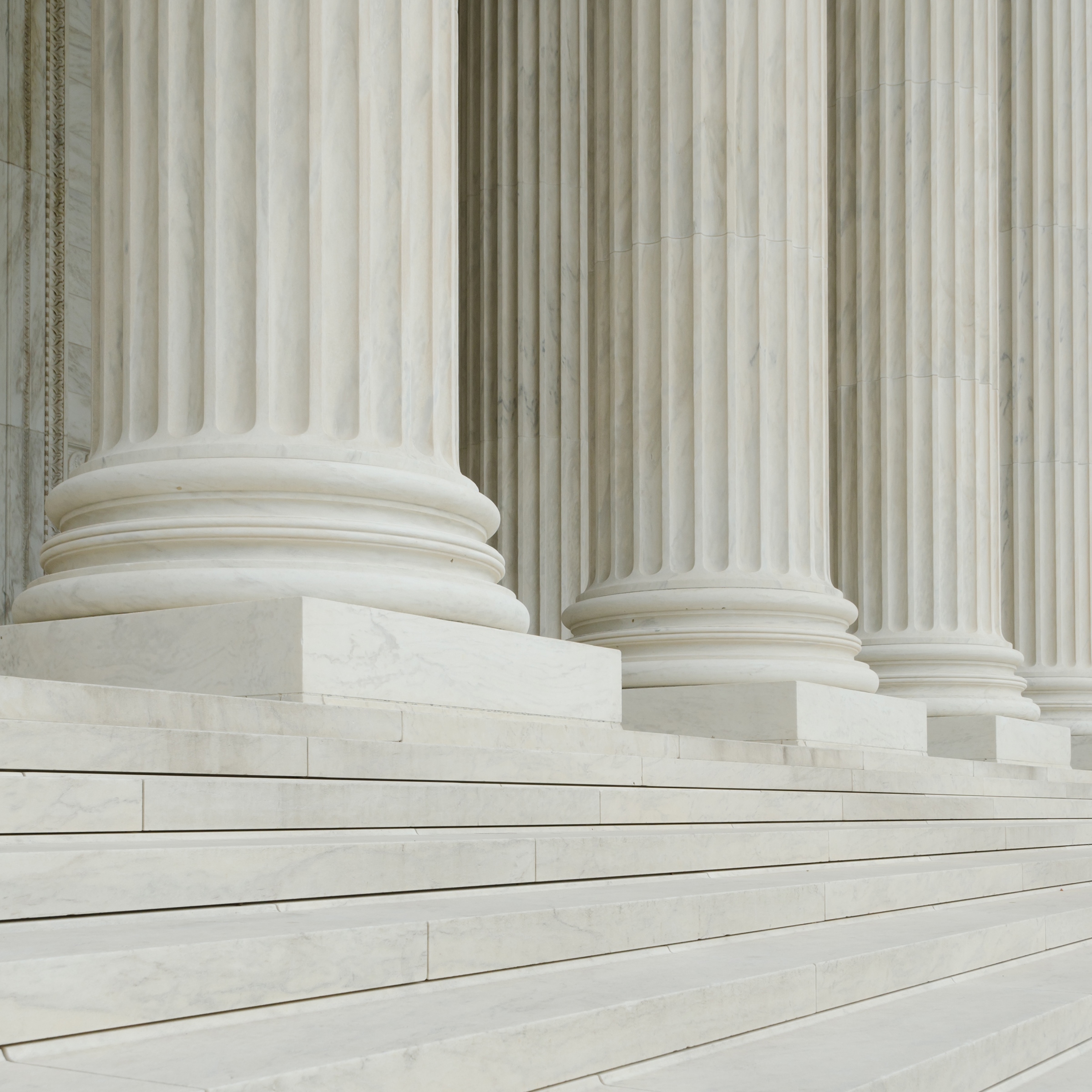July 1, 2015
Private: Last Words for the Death Penalty
Eighth Amendment, Glossip v. Gross, Justice Antonin Scalia, Justice Ruth Bader Ginsburg, Justice Stephen Breyer, midazolam

by Brandon L. Garrett, Professor of Law at the University of Virginia, and Lee Kovarsky, Professor of Law at the University of Maryland Carey School of Law.
*This post originally appeared at The Huffington Post.
Monday, the Supreme Court Justices delivered their oral opinion summaries in the Term's high-profile death penalty decision, Glossip v. Gross. Rather than reading from his concurring opinion or from a prepared statement, Justice Antonin Scalia -- still frazzled from release of the same-sex marriage cases -- appeared to be improvising. He accused Justice Stephen Breyer and Justice Ruth Bader Ginsburg of expressing personal "policy preferences," and added that the "two justices are willing to kill the death penalty outright rather than just pecking it to death." Why the defensiveness and outrage?
Glossip was a 5-4 victory for death penalty states, which retained leeway to use new and untested lethal-injection "cocktails." Scalia was part of the majority but he sounded strangely like he was uttering last words. Justice Samuel Alito's presentation of the majority opinion was also unusually defensive and hostile to the dissenters. Justice Alito insists it is "settled that the death penalty is constitutional." In a career-defining dissent, Justice Breyer showed just how unsettled the American death penalty remains.
The precise legal question in Glossip was whether states could use midazolam as the anesthetic in a three-drug legal-injection cocktail. For years, states used sodium thiopental, until suppliers stopped selling it for use in executions. Many states turned to pentobarbital, which also became difficult to obtain. Oklahoma turned to midazolam, considered more of an anti-anxiety medication than an anesthetic. After several "botched" executions, the Supreme Court agreed to hear whether improvements to Oklahoma's cocktail -- including a 400 percent increase the midazolam dosage -- satisfied the Eighth Amendment. Holding that it did, the Court seemed to announce a rule that an execution could not be Cruel and Unusual under the Eighth Amendment unless there is a "known and available alternative method of execution that entails a lesser risk of pain." Justice Sotomayor dissented, calling this a "surreal" endorsement of inhumane "human experimentation."
Justice Breyer did more. Joined by Justice Ginsburg, he wrote a dissent arguing that the death penalty is flat out unconstitutional, and he characteristically loaded his opinion with empirical data. In doing so, Breyer and Ginsburg joined the ranks of predecessors such as John Paul Stevens and Harry Blackmun who, in their later years on the Court, declared they no longer believed that there exists a constitutional way to administer capital sentences. In 1994, an 85 year-old Blackmun penned a memorable single-Justice dissent swearing off his participation in capital process: "From this day forward, I no longer shall tinker with the machinery of death." For Justices Breyer and Ginsburg, the death penalty cannot escape a dilemma's horns -- the procedural protections necessary to make the penalty reliable mean that the process takes so long that it no longer serves its retributive or deterrent purposes.
For the first time in recent memory, the threat sensed by death-penalty supporters is palpable. Capital sentencing and execution rates have been slowing considerably for a decade. Texas -- Texas -- has not sentenced a single person to death in 2015. Virginia, which executed the second highest number of prisoners in the modern death penalty era (since 1976), has not imposed a death sentence in over two years. Justice Breyer noted that seven states have abolished the death penalty in recent years, and that others have come to the brink of doing so. Justice Breyer described how even, in states such as Texas and Virginia that retain the death penalty, a small number of outlier counties still account for most capital sentences.
Public opinion has shifted dramatically. Justice Breyer notes that a majority of Americans would prefer to punish the worst of the worst by imposing life without parole over the death penalty. Innocence is playing a role. Cases with false confessions, lying informants, shoddy forensics and eyewitness misidentifications have led to a remarkable surge in exonerations, including over 140 from death row. Had the Court not ordered further hearings for exoneree Anthony Ray Hinton, he might have been wrongly executed because of flawed forensic evidence. Last year and after he spent 30 years on death row, DNA tests exonerated Henry Lee McCollum, whom Justice Scalia long used as the poster-child for why we need the death penalty. Yet the same proceedings that so often bring miscarriages of justice to light result in enormous delays in carrying out death sentences.
Whatever Glossip's formal holding, the body language of the Justices suggests that the death penalty is in a precarious position. The younger Justices appointed by Democratic presidents -- Sotomayor and Kagan -- did not join Justice Breyer's dissent, but the smart money is that they would vote with their senior colleagues if presented with the opportunity to strike the penalty down. With four likely votes to invalidate capital punishment, the fate of the institution may rest with Anthony Kennedy. That scenario cannot make the Court's conservative bloc comfortable, particularly after the last week. Meanwhile, in the court of public opinion and on the ground, the death penalty is clearly losing support as each year passes.




